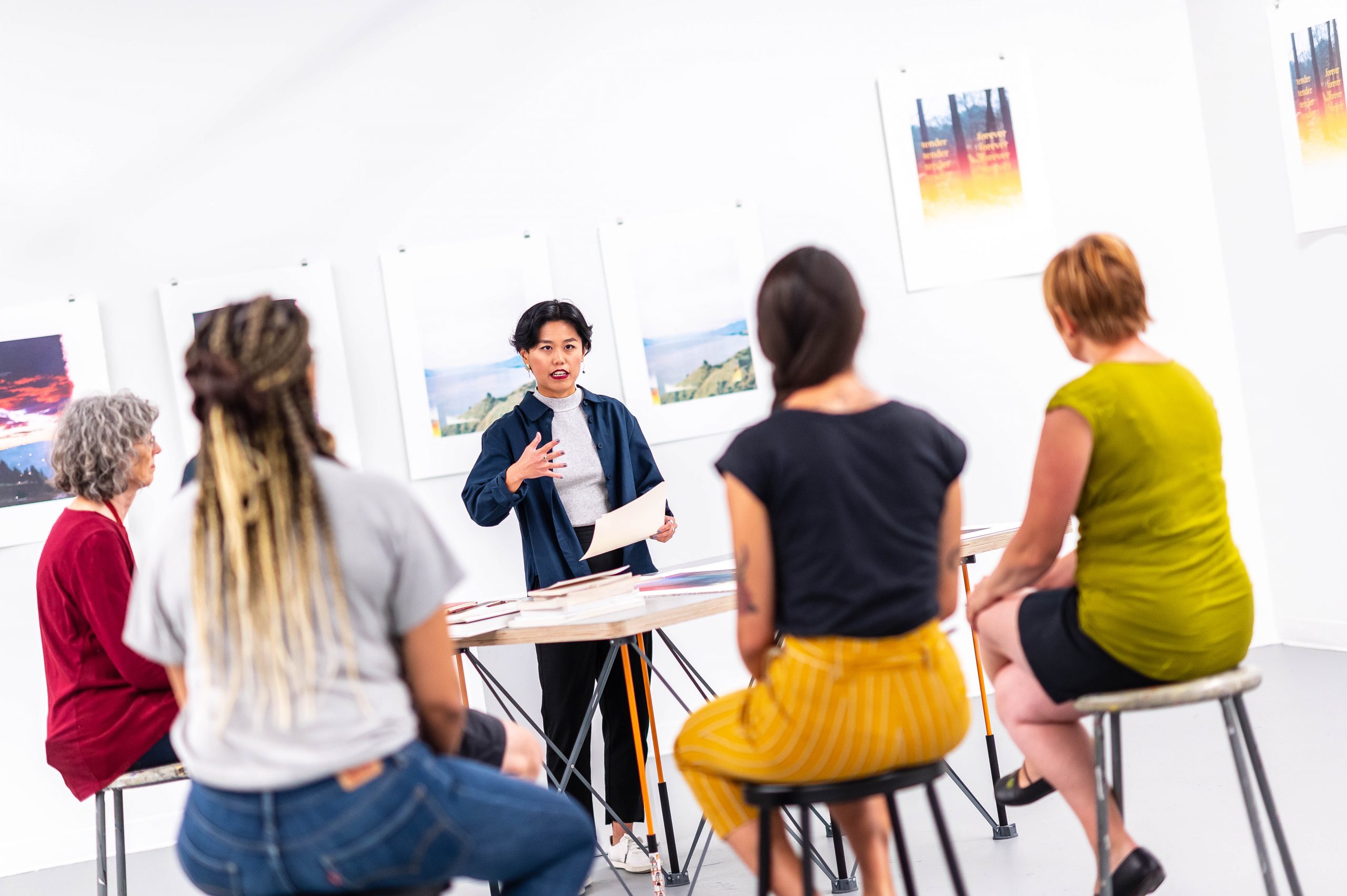Discover your story

Knowing yourself is one of the most important pieces to your career journey. Understanding your abilities, interests, values, strengths, and skills and how they relate to meaningful work will help to develop career ideas and pathways. There are four key components to help you identify and relate your skill set:
- Self reflection
- Self assessment
- Talk to people
- Get experience
Self-reflection
Reflecting on your experiences helps you learn about yourself.
Think of a time when you were performing at your best. What were you doing? What were you saying, thinking and feeling? What was going on around you?
Reflecting on times like these help you identify what helps you succeed. The more detailed you answer to this question, the more you will be able to get out of it. Don’t feel like you need to limit yourself to performing at your best at work. Maybe it’s in social situations, fitness classes or family interactions that you feel you’ve truly reached your potential. The things you learn about yourself from these kinds of situations are equally relevant.
What are your natural strengths that you love to use?
These are the things that come really naturally to you, and often when you’re doing them you rarely even notice yourself putting any effort in. Really be open minded here about what you define as a strength – it can be anything from being a great communicator to always being really positive, or finding it really easy to love. It doesn’t matter how you define that strength as long as you know what it means to you and that you make sure it’s a natural ability rather than a learned skill (for example a mind that understands numbers really well vs. creating effective algorithms, an eye for beauty and design vs. using photoshop well).
What drives and motivates you?
This is one of the most important questions to reflect on yet we almost never stop to think about it. Often, we assume what our motivators are and then we find ourselves getting frustrated when we’re not feeling motivated by them. Think about your values – being able to act on our values and seeing others respect our values is what tends to drive us the most. Are you driven by creating positive change, or by having a sense of freedom when you work? Do you like to be recognized for the work you do individually, or would you rather collaborate with others? List a maximum of five values that you think motivate you the most.
Once you’ve got the answers to these questions, you can start to highlight the things that keep repeating themselves in your answers. These are the things you know you want in your role, regardless of what company or industry it’s in.
Self-assessment
Using career assessment tools will help you evaluate yourself and connect you to labour market trends. There are no magic career assessment tools that will tell you the best career for you. Career assessments are a tool that help you identify strengths and abilities and how they relate to certain career paths.
There are multiple career assessment tools available for use, such as the Holland quiz.
Think less about job titles and more about the challenges you want to explore.
This exercise will help you discover your interests, values and talents, and help you visualize how to apply these to make a lasting impact on the world.
Create an account by clicking the link below and using the code: xwbgaavpor7vfy7
Free first step. Complete this checklist to prioritize six interest areas. Take top-scoring categories to ONET OnLine and type your codes into the “Advanced Search > Interests” to see which jobs value the same areas as you.
What is your academic major’s Holland “code”? See this chart with general categories of fit (PDF).
Talk to people
Talking to people in an industry is a fantastic way to learn about multiple career paths and different ways to reach your goals. These conversations will help you clarify your interests and skills and how to develop them for future employment opportunities. To start connecting to alumni and professionals use our Ten Thousand Coffee HUB, LinkedIn, and attend university events.
HAVE A GOOD INTRODUCTION READY
A good introduction will include your name, what you’re currently doing (e.g. I’m a student) and the area or type of work you’re interested in.
30-Second introduction
Start with:
- My name is…
- I’m a UBC student studying…
Then one of the following:
- I want to gain experience in…
- I’m curious about…
- My long-term career goal is…
Then ask them about themselves. Connecting is as much about listening as it is talking.
DO YOUR RESEARCH
Always prepare for a conversation, even if it’s informal. Learn as much as you can about the person you’re meeting with (via Google, LinkedIn, etc.), their organization and industry. Preparation will demonstrate your enthusiasm and keeps the conversation flowing.
SHOW PROFESSIONALISM
First impressions count, so ensure that you wear clothing that is appropriate for the field or the setting.
ENGAGE IN MEANINGFUL CONVERSATIONS
Open-ended questions are the best for starting conversations and allow you to learn about others without being too personal. Demonstrate your interest by asking questions, being genuine and avoid dominating the conversation.
SEND A THANK YOU EMAIL OR MESSAGE
Thank everyone you meet or who gives you advice. Continue to follow-up with your contacts even after you’ve obtained a job to develop and maintain your network for the future. You can do so through email or LinkedIn.
Get experience
Gaining experience is a valuable way to clarify your abilities, interests, values, strengths, and skills. It is often through experience we discover what we are not interested in pursuing which then leads us closer to understanding the career we want. You can gain experience in so many ways on- and off-campus. To enhance your learning experience, remember to pursue a self reflection throughout your experience.